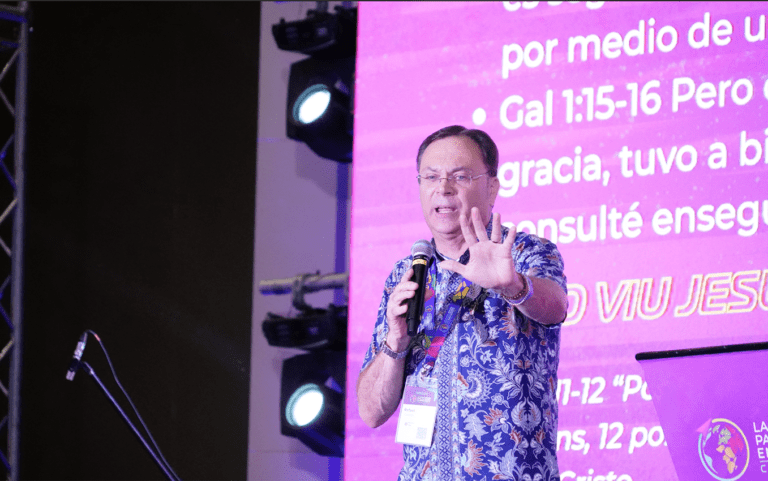Leer en Español
Speaking to the Ibero-American Missionary Congress Committee this week, Rafael Canada, director of Mobilization at Comibum International, challenged the evangelical church, focusing on Jesus’ mission and avoiding segmenting ministry into parts that wandered from the Great Committee.
“His mission is our ministry,” Canada said, emphasizing that the purpose of all churches and Christian leaders is to advance the work of Christ on Earth. “All Pastor Ministry, All Youth Leaders Ministry, All Youth Leaders Ministry, All Worship Directors Ministry, All Missionaries Ministry – it’s all the same duties,” he emphasized.
In addition to his role in Comibam, Canada serves as a mobiliser for Latin American churches and missionaries, and is also the director of Connect Global.
Calls for the Ministry’s fragmentation
One of the most impressive parts of the Canadian speech was his criticism of compartmentalisation within Christian ministry. “We segmented ministry. If someone study to become a pastor, they go one path. If they are studying a mission, it’s another path, as if it were a different calling,” he said.
He criticized how several churches reduced their calls to Jesus’ mission to mere slogans. “We have Matthew 28 on the wall, but we never sent missionaries, never made missionary trips, and we didn’t even pray for a country we hadn’t reached,” he lamented. For the first disciples, he said, it was not a slogan – it was the command that led them to give their lives for the gospel.
It functions as a church model
Canada has also challenged a specialised model of the contemporary church with expensive structures, Sunday performance and marketing strategies. In his view it is a system that often ignores the essential mission of the Church. “We are early churches. They – the church of conduct – are a fulfilling church,” he said.
“They didn’t have buildings, screens, smoke machines, lights. But they had the spirit of God, they had the words, they had the mission,” he continued. According to Canada, true ecclesiastics must arise from strong Christian theory. “If Christ is Lord, then his mission must be our mission. It should shape our church, not the other way around,” he said.
In his remarks, he lamented that many churches would reduce the mission of Jesus to decorative mottos or academic requirements. “The majority of our churches have never sent a single missionary, they don’t financially support one, and don’t even pray for a mission,” he said, questioning the lack of involvement with a group of people they haven’t reached.
Rejecting false dichotomy and misguided theology
Canada also opposed the division between “pastors” and “missioners.” “If we serve the same Lord, we share the same mission. Different places, but the same calling,” he said.
He argued that many modern church models treat missions as options, secondary and even threats to institutional growth. “It’s not about planting our brands and churches in every world capital, it’s about making disciples of all nations,” he said.
The speaker emphasized that the great committee is “not an option, but a command from the Lord Jesus Christ for all believers,” and called on the Church to actively engage in the global mission. He explained that Comibum works in key areas such as “training, sending and caring for missionaries, and developing resources to support the church for this task.”
The ultimate charm: unity and purpose
Canada concluded with visual illustrations. Those who pull in different directions cannot move forward, but when they are in line with the same direction, which is Jesus’ mission, their whole body moves forward together. “We were not called to position, but we were called to mission,” he concluded.
In this message, Rafael Canada shook the assumptions of many of the Comibam 2025 participants, reminding them that global tasks are neither optional nor secondary. It is the very heart of the church calling.
Originally published by Diario Cristiano, the Spanish version of the Christian Daily International.
